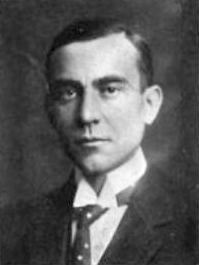Ralph Barton Perry facts for kids
Quick facts for kids
Ralph Barton Perry
|
|
|---|---|
 |
|
| Born | July 3, 1876 Poultney, Vermont
|
| Died | January 22, 1957 (aged 80) Cambridge, Massachusetts
|
| Burial place | Mount Auburn Cemetery |
| Education | |
| Occupation | Philosopher |
| Spouse(s) |
Rachel Berenson
(m. 1905)Harriet Armington Seelye
(m. 1932) |
| Children | 2 |
Ralph Barton Perry (born July 3, 1876 – died January 22, 1957) was an important American philosopher. A philosopher is someone who studies big questions about life, knowledge, values, and how we should live.
Perry believed strongly in "moral idealism." This means he thought that our ideas about right and wrong should guide our lives. He said that thinking about life should always fit with what is true in ethical (right and wrong), scientific, and metaphysical (about reality) ways. He also felt that religious ideas were valid if they made sense and helped society improve.
Contents
Who Was Ralph Barton Perry?
Ralph Barton Perry was born in Poultney, Vermont, on July 3, 1876. He grew up to become a very respected thinker.
Early Life and Education
Perry went to Princeton University and earned his first degree in 1896. He then continued his studies at Harvard University. There, he earned a master's degree in 1897 and a Ph.D. (a very advanced degree) in 1899.
After teaching philosophy at Williams College and Smith College for three years, he returned to Harvard. He started as an instructor in 1902. Over the years, he became an assistant professor, then a full professor. From 1930 to 1946, he held a special position called the Edgar Pierce Professor of Philosophy.
His Big Ideas in Philosophy
Perry was a student of another famous philosopher named William James. Perry helped edit one of James's important books. Perry became a leader in a group called the New Realism movement.
What is New Realism?
New Realism was a way of thinking that focused on how we see and understand the world. Perry believed that things exist independently of our minds. He also thought that our ideas about what is valuable come from nature itself.
Ideas on Value and Democracy
Perry wrote a lot about what makes things valuable. He also had strong ideas about democracy. He believed in a "militant democracy," which meant a strong democracy that would defend itself. But he also stressed it should not be "totalitarian," meaning it should not control every part of people's lives.
His book Puritanism and Democracy (published in 1944 during World War II) explored how two key ideas in American history, Puritanism and democracy, could work together. Between 1946 and 1948, he gave a series of important talks in Scotland called the Gifford Lectures, titled Realms of Value.
A Famous Biographer
Ralph Barton Perry was not only a philosopher but also a talented writer. He wrote a very well-known biography (a life story) of his teacher, William James. This book was so good that it won the 1936 Pulitzer Prize for Biography or Autobiography. This is one of the highest awards a writer can receive in the United States.
Family and Later Life
Ralph Barton Perry married Rachel Berenson on August 15, 1905. They lived in Cambridge, Massachusetts. Their son, Edward Barton Perry, was born in 1906. Edward later married Harriet Armington Seelye in 1932.
In 1919, Perry gave the graduation speech at the first-ever graduation ceremony for Connecticut College.
Ralph Barton Perry passed away at his home in Cambridge on January 22, 1957. He was buried at Mount Auburn Cemetery.
See Also
- American philosophy
- History of moral idealism
- List of American philosophers

